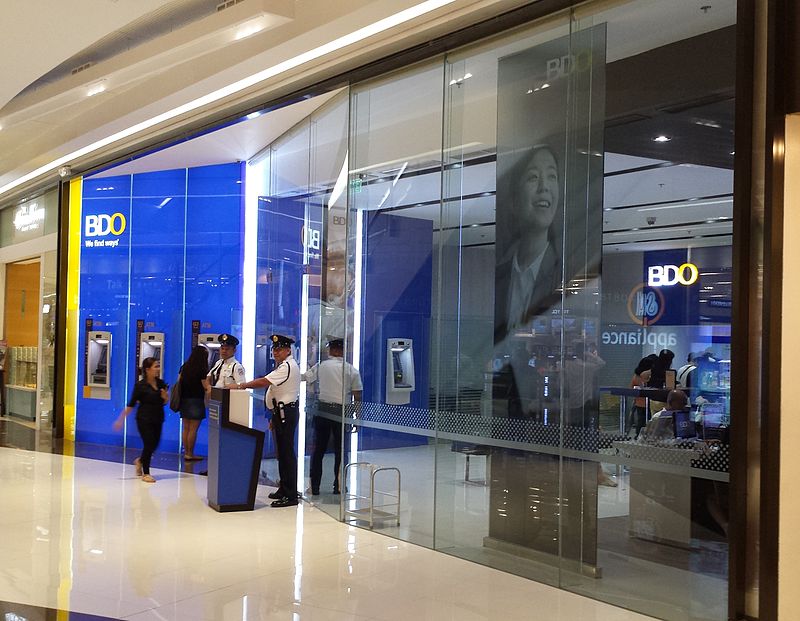Business and Economy
Fitch Ratings affirms credit stability of 8 PHL banks

Fitch Ratings affirms credit stability of 8 PHL banks (Photo by Hans Olav Lien – Own work, CC BY-SA 3.0,.)
MANILA—Fitch Ratings on Wednesday affirmed the ratings of eight Philippine-based banks, including two government financial institutions, as it continues to see strong state backing and improvement of the the private banks’ asset quality and profitability.
In separate statements, the debt rater affirmed the ‘BB+’ rating with positive outlook on the long-term issuer default ratings (IDRs) of the Development Bank of the Philippines (DBP) and the Land Bank of the Philippines (LBP).
These ratings, it said, “reflect Fitch’s expectation of extraordinary sovereign support for both banks in times of need.”
”Fitch believes that the sovereign would have a strong propensity to provide extraordinary support to DBP and LBP, if needed, given their full government ownership and policy mandate,” it said.
It explained that “probability of state support is assessed to be moderate overall, taking into account the sovereign’s financial strength.”
”DBP and LBP do not benefit from blanket government guarantees on their liabilities, have received capital support from the state only infrequently on an ad hoc basis and are required to remit dividends to the national government to support the sovereign coffers. These characteristics indicate the two banks’ self-sufficient operations, stemming from their largely commercial approach to lending, in our view,” it said.
The private banks whose ratings were also affirmed are Ayala-led Bank of the Philippine Island (BPI) ‘BBB-’; Sy-led Banco de Oro Unibank Inc. (BDO), ‘BBB-’; Ty-led Metropolitan Bank & Trust Company (Metrobank), ‘BBB-’; Henry Sy’s China Banking Corporation (ChinaBank), ‘BB+’; Tan-led Philippine National Bank (PNB), ‘BB+’; and Yuchengco-led Rizal Commercial Banking Corporation (RCBC), ‘BB+’. Outlook on all these ratings is Stable.
Fitch said ratings on BPI, BDO and Metrobank “reflect their strong domestic franchises, diverse revenue streams and adequate risk-management frameworks, which help to underpin their steady asset quality, above-average profitability and healthy balance sheet buffers.”
“BPI’s ratings also give credit for its historically prudent risk appetite, and superior profitability, and funding and liquidity metrics,” it said.
For the other three, Fitch said these “have generally shown a greater appetite for growth in recent years as they seek to gain scale and share.”
”But Fitch expects that they will display broadly stable asset quality and profitability backed by acceptable risk controls as they grow.”
Fitch expects the banks to benefit from the positive outlook the credit rater have for the Philippine economy for the next two years due to resiliency of domestic consumption and strong investment growth.
“Headwinds for overseas remittances and business-process outsourcing revenues – two important drivers of domestic consumption – may rise, but we still expect both inflow streams to remain broadly resilient for now in the absence of more pronounced and immediate threats,” it said.
“The current government’s plans to accelerate infrastructure spending should provide an added boost to domestic activity, and the authorities retain adequate policy flexibility to offset a weakening in economic conditions or greater financial market volatility. We expect credit growth in the mid- to high-teens against this backdrop,” it added.
As of end-December 2016, bank lending, excluding placements in the Bangko Sentral ng Pilipinas’ (BSP) reverse repurchase (RRP) facility, remain strong with an expansion of 17.2 percent.
Fitch forecasts gradual tightening of liquidity due to external factors and sustained credit growth.
“However, system liquidity should remain adequate given the significant pool of funds currently held with the central bank that can be released to meet demand when required,” it added.





















